In our previous essay, “Race, Identity, Community [2],”[1] we discussed a number of subjects: most importantly, the varying levels and relations of ethnic and cultural groups, the matter of cultural communication, openness, and closure, the relationship between race and culture, the necessity of resisting miscegenation for the sake of ethno-cultural stability, the error of individualism and the value of social holism, and the importance of the sense of community to ethnic and racial identity.
In the present essay, we will not reiterate the major points which we made before, except those which are relevant to the matters discussed. The purpose of this essay is to serve as an extension of the previous one and to expand upon certain points which were not made sufficiently clear or covered properly, and it thus must be read in the context of the preceding essay. Here we aim to discuss the topic of social, cultural, and political relations between ethnic and racial groups, the problem and varieties of social and biological mixing, and the practices and forms of ethnic and racial separatism.
Identity and Interaction
Particularities and particular identities define human beings; contrary to egalitarian and universalist ideology, one cannot be truly human without a belonging to particular groups, including religious, political, cultural, and racial groups. Of course, belonging to a group and possessing a conscious identification with this belonging are two different things (just as we can say that there is a conscious and unconscious aspect to identity). History and observation show that ethnic, cultural, and racial identities come into being and are awakened by awareness of and interaction with other ethnic and racial groups. As Alain de Benoist wrote: “The group and the individual both need to be confronted by ‘significant others.’ Therefore, it is nonsense to believe that identity would be better preserved without this confrontation; actually, it is the opposite: confrontation makes identity possible. Other subjects make a subject become subject.” [2]
Thus, interaction with other types of human beings is an essential part of human existence, since they draw their very awareness of being who they are by this interaction. Furthermore, as we have already mentioned in our previous work (“Race, Identity, Community”), the various cultures (in terms of both smaller and larger groups) develop and are enriched not only by internal development, but also by interaction with and the exchange of products and ideas with other cultures or peoples. It is for these reasons that it is justified to assert that “the originality and the richness of the human heritages of this world are nourished by their differences and their deviations . . .” [3] as Pierre Krebs stated, similarly to many other New Right authors.
Of course, recognizing the value of diversity and differences, and appreciating these differences in other peoples and learning from them, does not mean that all peoples of the world can or should be appreciated equally. It is, of course, perfectly natural that one people will find certain foreign peoples to be unattractive in some cases, and will distance themselves from them. This is why, although diversity is valuable, the present egalitarian and multiculturalist propaganda that all cultures and ethnic groups must be appreciated and accepted equally, is simply wrong and absurd. No healthy people show equal liking for all others, although it is possible to respect all foreign peoples even if one does not treasure them all. It is, for example, completely natural that a European may be repulsed by the culture of an African tribe but simultaneously feel admiration for East Asian culture, while still according to each people a certain level of respect.
It is also a fact of life that without barriers, without a certain level of separation from other peoples, and without a specific territory on which to live as a distinct and relatively homogeneous people, an ethnic or a racial group would disappear through mixture or assimilation into other groups. The extreme modern liberal-globalist propaganda advocating complete openness and mixing between cultures and peoples, using as its justification historical examples of cultural exchanges, is fallacious because normal cultural dialogue and interaction never involved complete openness but always a limited form of interaction.
Total openness and mixing eliminates identities because peoples do not merely change through such processes, but lose who they are or merge with another people entirely. To quote Benoist, “it is the diversity of the human race which creates its richness, just as it is diversity which makes communication possible and gives it value. Diversity of peoples and cultures exist, however, only because, in the past, these various peoples and cultures were relatively isolated from one another.”[4] Culture transforms over time due to internal creativity and development as well as through communication with other cultures, but contact with other cultures must always be limited and imperfect, otherwise the very integrity of a culture is undermined. Therefore, “Identity is not what never changes, but, on the contrary, it is what allows one to constantly change without giving up who one is.”[5]
The Problem of Mixing
It needs to be recognized that mixing, both the social form (so-called “integration”) as well as the biological form (miscegenation), is a complicated human problem. Mixing has occurred all throughout history in a variety of forms and circumstances, as a result of different forms of close interaction between different ethnic and racial groups. The questions of why mixtures occur and whether this is a normal and acceptable phenomenon therefore naturally present themselves, and they must be answered with the proper level of sophistication in order for us to defeat our opponents.
First, it needs to be recognized that mixture between two different peoples belonging to the same race is a distinct matter from mixture between two different races, and involves different principles and circumstances. Ethnicities belonging to the same racial type share the same biological and spiritual background, which serves as a larger foundation for identity which connects them. In cases where two or more ethnic groups of the same racial type no longer live separately and choose to mix socially (from which intermarriage inevitably follows), it is oftentimes because these groups – within a particular time and conditions – have become closely connected culturally and spiritually or because they no longer feel their distinctions to be significant.
This phenomenon cannot be regarded as abnormal and wrong any more than when two racially related ethnic groups choose to separate instead of mix, because both occurrences are rather frequent in history and do not normally have negative effects to identity (even if identity undergoes some change in this). For example, many European ethnic groups (the English, the French, the Balkan peoples, etc.) are the result of an inter-European mixture that occurred centuries ago, although they also have a right to separate. Thus, within a race, separation and mixing can both be regarded as normal phenomena, depending on the circumstances and the nature of the ethnic groups in question.
On the other hand, between different races, mixing can be argued to be an abnormal phenomenon because the relations and effects are different; the state of normality is to desire racial separation. Contrary to the assertions of many egalitarian multiculturalist (“multiculturalism” here signifying the belief and practice of ethnic mixing) propagandists, racial identity and the concept of race is not a modern phenomenon, for, as Benoist pointed out, “the idea of race is almost as old as humanity itself.”[6] So it is clear that recognizing the importance of race and practicing racial separatism does in fact have a historical and even a universal basis; human beings were never in a condition where they completely lacked racial feelings and mixed freely.
The reasons for racial mixing (social and, following that, biological) throughout history are complex and differ based on the circumstances in question. In some cases, it was due to a powerful, militant people conquering another people and forcefully reproducing with the women of the conquered in order to secure their conquest through breeding. In other cases, as some authors have argued, it is due to the decadence of a people who have lost certain spiritual qualities, their sense of differentiation, and their racial identity, and have as a result chosen to mix with other peoples, even those racially different (these other peoples may be immigrants or conquered peoples who formerly lived separated). Of course, where mixing occurs willingly, both sides have surrendered their unique identity.[7] There may be other causes, and in a sense racial miscegenation is inevitable because it is always bound to occur at certain times and places where different races come into contact (even if only to a small extent).
However, it is always important to recognize and reassert that despite its occurrence throughout history, for whatever reasons or causes, race-mixing is not a rule. It is actually rather abnormal, and that it occurs all throughout history does not invalidate this fact. Because the identity, basic anthropological and psychological features, and character of ethnic groups and cultures are influenced by racial type, and because of the spiritual and sociological dimension of race, race-mixing means a deep and profound change completely transforming a family or, when it occurs on a larger scale, a people. This idea cannot be associated with biological reductionism, which we must reject as fallacious; even though culture, society, and cultural identity cannot be reduced to race, and race is only one factor among many which affects them, racial background is still undoubtedly an important factor.
Thus, since preserving their racial type means maintaining who they are, their identity as a folk, peoples are thus historically compelled to resist race-mixing and to separate from other races. It is not only for the sake of their survival that they are so compelled, but also because of the primal impulse to live with their own people in their communities. As Krebs pointed out, “modern ethology clearly established the innate tendency of man to identify with individuals who resemble him . . .”[8] There is, furthermore, also the fact that, as Evola pointed out, “blood and ethnic purity are factors that are valued in traditional civilizations too,” which means that the maintaining physical racial type is a practice which holds a meta-historical value.[9]
We should note that, of course, a people which goes through minor amounts of race-mixing does not lose its identity or its belonging to its original racial type. For example, the Eastern Slavic peoples and Southern Europeans peoples who have endured some level of miscegenation historically still belong to the White-European race, both in terms of their general anthropological-physical type as well as their racial and ethnic identity. Race is defined not by a strict purity, but by the possession of a general physical form (the general anthropological features associated with a race), the general spiritual form associated with it, and the cultural style and identity which is sociologically linked with race.[10]
It also needs to be mentioned here that resisting race-mixing is not necessarily a “racist” phenomenon (which means racial supremacism), because placing value on racial differences and practicing racial separatism can and has taken on non-racist forms. It is clear that it is extremely naïve and erroneous to associate all forms of racial separatism with racism and inter-racial hostility.[11] As Guillaume Faye once wrote:
In effect, just as it is normal and legitimate for the Arab, the Black African, the Japanese to desire to remain themselves, to recognize that an African is necessarily a black man or an Asian a yellow man, it is legitimate, natural and necessary to recognize the right of the European to reject multiracialism and to affirm himself as white man. To link this position with racism is an inadmissible bluster. The real racists are, on the contrary, those who organize in Europe the establishment of a multiracial society.[12]
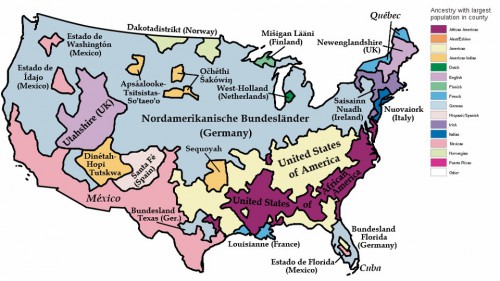
Practices of Separatism
Evidently, racial and ethnic separatism has taken on a variety of forms throughout history. One commonly recognized form is the creation of a class or caste system, separating people into different castes based on their racial background (or, in a typical analogous system, based on ethnic or cultural background). The class structure of racial separation, which is usually the result of conquest, can be seen in numerous cases throughout history, including in Classical civilization, in certain ancient Near Eastern civilizations, in India, and in many parts of Central and South America after European colonization. The most negative feature of this practice is obviously that it involved “racism” and subjugation, although it also had the positive effect of preserving the racial types which have formed, even after miscegenation (the new, mixed racial types; mulattoes and mestizos), due to the fact that it discouraged race-mixing by class separation.[13]
Another form of separatism is what is commonly recognized as ethnic “nationalism,” which has its primary basis in ethno-cultural identity, although it is oftentimes accompanied by racial identity where inter-racial contact exists. Nationalism is defined, in the most simple terms, as the belief that ethnic groups or nationalities (in the cultural sense) are the key category of human beings and that they should live under their own independent states. It implies complete and total separation of ethnic groups into separate nations. Nationalism is oftentimes associated with ethnic chauvinism, inter-ethnic hostility, imperialism, and irredentism, although it is important to remember that there have been certain select forms of nationalism throughout history that were not at all chauvinistic and imperialistic, so it is erroneous to assume that it always takes on these negative features.
However, “nationalism” is a problematic term because it has been defined in different and sometimes contradictory ways. In one, very generic sense, nationalism means simply the desire of a people to live separately from others, under its own state and by rule of leaders of its own ethnic background; in essence, a basic ethnic separatism and desire for independence. In this sense, nationalism is a very ancient idea and practice, since all across history one can find cases where a people of one particular ethnic background desired to be independent from the rule of another different people and fought for this independence. This is not, however, the way nationalism is always defined, and aside from the fact that it is sometimes defined as being necessarily chauvinistic, it is also often defined in a certain manner that makes it particularly an early modern phenomenon.
Many New Right as well as Traditionalist authors have defined nationalism as a form of state in which the “nation” is politically or culturally absolutised, at the expense of smaller local or regional cultural differences, and regarding other nations as completely foreign and of lesser value. This form of “nationalism” is exemplified by the Jacobin nation-state and form of sovereignty (since the French Revolution was a key force in initiating the rise of this state form), and is identified by the elimination of sub-ethnic differences within its borders and the regard for differences with other peoples or nationalities as absolute. Naturally, this form of nationalism has the consequence of creating hostility and conflict between nations because of these ideological and political features.[14]
From the “Radical Traditionalist” perspective, exemplified by Evola’s thought, nationalism is an anomaly, a deviation from valid state forms. It is regarded as negative, firstly, because this form of traditionalism considers ethnicity and nationality as secondary qualities in human beings; although they have some level of importance, they are not valid as primary features around which to organize states and leadership, which should be based solely upon the values of elitism, aristocracy, and spiritual authority. Nationalism also contradicts the practice of the Empire – the imperial state, which is not necessarily imperialistic – since nationalism means the absolutisation of the “nation,” whereas the traditional empire is organized as a supra-national federalistic union with a central spiritual authority.[15] According to Evola,
The scheme of an empire in a true and organic sense (which must clearly be distinguished from every imperialism, a phenomenon that should be regarded as a deplorable extension of nationalism) . . . safeguarded the principles of both unity and multiplicity. In this world, individual States have the character of partial organic units, gravitating around . . . a principle of unity, authority, and sovereignty of a different nature from that which is proper to each particular State . . . due to its super-ordained nature, would be such as to leave wide room for nationalities according to their natural and historical individuality.[16]
In the imperial state, which Evola asserts is the true traditional model of the state, ethnic or national groups are thus separated federally; different peoples live under the same state and serve the same ultimate monarchical authority, but they live in separate parts of the kingdom or empire. To quote one his key works: “the Middle Ages [and also certain ancient civilizations] knew nationalities but not nationalisms. Nationality is a natural factor that encompasses a certain group of common elementary characteristics that are retained both in the hierarchical differentiation and in the hierarchical participation, which they do not oppose.”[17]
Identitarian Separatism
The European New Right and the Identitarian Movement, the latter being closely related to and derived from the New Right,[18] also advocates the practice of federalism, although their thinkers have some disagreements with the claims of “Radical Traditionalists” concerning certain essential principles. The “New Rightist” concept of federalism involves the vision of a federation (or better, confederation, which more clearly expresses this decentralized type of federalism) which is based upon the principles of subsidiarity, of granting autonomy to its regions, and of local and regional political structures holding the power that is due to them, while the central authority rules primarily when decisions affecting the whole state must be made. This form of state and sovereignty “implies plurality, autonomy, and the interlacing of levels of power and authority.”[19] Subsidiarity and allowing decisions to be made at lower levels are also features of the Radical Traditionalist concept of the federalist state, but in contrast they assert the importance of the ultimate authority of the sovereign (the central ruler) far more.
Aside from supporting a partly different conception of sovereignty and authority from Radical Traditionalists, Identitarians and New Rightists also support the practice of a participatory and organic form of democracy as the ideal state form (which, it must be noted, is still compatible with respect for authority and hierarchy). This idea does indeed have a historical basis, for, as Benoist pointed out, “governments with democratic tendencies have appeared throughout history . . . . Whether in Rome, in the Iliad, in Vedic India or among the Hittites, already at a very early date we find the existence of popular assemblies for both military and civil organisation. Moreover, in Indo-European society the King was generally elected . . .”[20]
Furthermore, New Rightists and Identitarians strongly assert the value of ethnic, cultural, and racial differences and identities, and therefore, according to this conception, organic democracy coincides with the recognition of and respect for ethnic differences.[21] Because organic democracy, meaning true democracy, is based off of respect for ethnic differences, Benoist rightly asserts that:
Democracy means the power of the people, which is to say the power of an organic community that has historically developed in the context of one or more given political structures – for instance a city, nation, or empire . . . Every political system which requires the disintegration or levelling of peoples in order to operate – or the erosion of individuals’ awareness of belonging to an organic folk community – is to be regarded as undemocratic.[22]
The New Right advocates the idea of respecting the identities of smaller, local, and regional ethnic or sub-ethnic groups as well as recognizing the importance of larger ethnic and cultural relations and unities. Thus, for example, to be a Breton, a Frenchman, and a White European[23] all have importance, and each level of identity and belonging has value in a hierarchical relationship. Ethno-cultural groups of all levels and types have the right to live with freedom and separately from others in different states and territories. The New Right acknowledges that there are cases where complete state separation for a people is appropriate (akin to the simpler, generic idea of “nationalism”), but there are also cases where the federalist state system in which each people has its own autonomous region in which to live is more practical or desirable.[24]
Arguably, the New Right or Identitarian vision is not only the most desirable, but also the most realistic in the modern world because it offers the most balanced solution to the current problems and ethnic-racial chaos. In a world where democratic feelings have become permanent among most peoples it offers an organic participatory democracy to replace the corrupt liberal democracies presently dominant. Where there are countries composed of multiple ethnicities which are not in a position to divide themselves entirely (complete nationalism) it offers the idea of a federation of autonomous regions. Finally, in a world where ethnic and racial groups are threatened to be disintegrated by “multiculturalist integration” and mixing it offers a peaceful and fair solution of territorial separation, the creation of unmixed ethnic communities, and cooperation between the different races and peoples of the world to achieve this vision.
Notes
[1] Lucian Tudor, “Race, Identity, Community,” 6 August 2013, Counter-Currents Publishing, http://www.counter-currents.com/2013/08/race-identity-community [3].
[2] Alain de Benoist, “On Identity,” Telos, Vol. 2004, No. 128 (Summer 2004), p. 39.
[3] Pierre Krebs, Fighting for the Essence (London: Arktos, 2012), p. 89.
[4] Alain de Benoist, “What is Racism?” Telos, Vol. 1999, No. 114 (Winter 1999), p. 46-47. This work is available online here: http://www.alaindebenoist.com/pdf/what_is_racism.pdf [4]
[5] Benoist, “On Identity,” p. 41.
[6] Alain de Benoist, “What is Racism?” p. 36. It is worth mentioning here that there are certain mainstream historians who have admitted and studied the history of racial feelings since ancient times (in Western and Middle Eastern civilizations, specifically). Among their works include Benjamin Isaac, The Invention of Racism in Classical Antiquity (Princeton: Princeton University Press, 2004) and Miriam Eliav-Feldon, Benjamin Isaac, & Joseph Ziegler, eds., The Origins of Racism in the West (Cambridge: Cambridge University Press, 2009). Despite the egalitarian bias and hostility to racialism these authors may reveal in their works, these still have research value for us because of the historical facts they provide.
[7] See for example the chapters “Life and Death of Civilizations” and “The Decline of Superior Races” in Julius Evola, Revolt Against the Modern World (Rochester: Inner Traditions, 1995) and Krebs, Fighting for the Essence, pp. 23 ff. & 79 ff.
[8] Ibid., p. 25.
[9] Evola, Revolt Against the Modern World, p. 57. On this matter, see also the chapter “The Beauty and the Beast: Race and Racism in Europe” in Tomislav Sunic, Postmortem Report: Cultural Examinations from Postmodernity (Shamley Green, UK: The Paligenesis Project, 2010).
[10] A number of Right-wing authors have already written much more on this matter. For the White Nationalist perspective in particular, see especially Ted Sallis, “Racial Purity, Ethnic Genetic Interests, & the Cobb Case,” 18 November 2013, Counter-Currents Publishing, http://www.counter-currents.com/2013/11/racial-purity-ethnic-genetic-interests-the-cobb-case [5]. For the New Right perspective, see for example: the entries “Miscegenation” and “Race, Racism, Anti-Racism” in Guillaume Faye, Why We Fight: Manifesto of the European Resistance (London: Arktos, 2011), pp. 194 ff. & 227 ff.; Benoist’s commentaries in his “What is Racism?”; Tomislav Sunic, “Ethnic Identity versus White Identity: Differences between the U.S. and Europe,” The Occidental Quarterly, Vol.12, No.4 (Winter 2012/13), available online here: http://www.tomsunic.com/?p=444 [6].; The articles in Sebastian J. Lorenz, ed., Elementos: Revista de Metapolítica para una Civilización Europea, No. 47, “Elogio de la Diferencia, Diferencialism versus Racismo,” (28 May 2013), http://urkultur-imperium-europa.blogspot.com/2013/05/elementos-n-47-elogio-de-la-diferencia.html [7]
[11] See the citations of Faye, Benoist, Sunic, and Lorenz in the previous note (# 10).
[12] Guillaume Faye, “La Sociedad Multirracial,” 13 Jul y 2007, Guillaume Faye Archive, http://guillaumefayearchive.wordpress.com/2007/07/13/la-sociedad-multirracial [8]. Note that this article was republished in print in Escritos por Europa (Barcelona: Titania, 2008).
[13] On the matter of historical examples, see our previous citations of Isaac’s The Invention of Racism in Classical Antiquity and The Origins of Racism in the West. Dealing with the racial basis for the Indian caste system, see for example the preface to Arvind Sharma, Classical Hindu Thought: An Introduction (Oxford: Oxford University Press, 2000), and Alain Daniélou, India: A Civilization of Differences: The Ancient Tradition of Universal Tolerance (Rochester: Inner Traditions, 2003), the latter arguing that the caste system is not truly “racist” but a natural racial ordering. On the race-based case/class systems in Central and South America, one classic mainstream resource is Magnus Mörner, Race Mixture in the History of Latin America (Boston: Little, Brown, 1967). There are, of course, numerous other academic resources on this subject matter.
[14] See Alain de Benoist, “Nationalism: Phenomenology & Critique,” 16 May 2012, Counter-Currents Publishing, http://www.counter-currents.com/2012/05/nationalism-phenomenology-and-critique [9]; Michael O’Meara, New Culture, New Right: Anti-Liberalism in Postmodern Europe, 2nd edition (London: Arktos, 2013), pp. 228 ff.; Edgar Julius Jung, “People, Race, Reich,” in Europa: German Conservative Foreign Policy 1870–1940, ed. & trans. by Alexander Jacob (Lanham, MD, USA: University Press of America, 2002); the overview of Evola’s position in the chapter “Nations, Nationalism, Empire and Europe” in Paul Furlong, Social and Political Thought of Julius Evola (Abingdon & New York: Routledge, 2011).
[15] See Alain de Benoist, “The Idea of Empire,” Telos, Vol. 1993, No. 98-99 (December 1993), pp. 81-98, available online here: http://www.gornahoor.net/library/IdeaOfEmpire.pdf [10].
[16] Julius Evola, Men Among the Ruins: Postwar Reflections of a Radical Traditionalist (Rochester: Inner Traditions, 2002), p. 277.
[17] Evola, Revolt Against the Modern World, pp. 338-39.
[18] Identitarianism is founded upon the ideas of New Right intellectuals such Alain de Benoist, Guillaume Faye, Tomislav Sunic, Pierre Krebs, Dominique Venner, and Pierre Vial, who themselves are sometimes designated as “Identitarian.” However, we should also note that some of the basic ideas of the Identitarian Movement can be found in We Are Generation Identity (London: Arktos, 2013), although by itself this brief manifesto may be insufficient.
[19] Alain de Benoist, “What is Sovereignty?” Telos, vol. 1999, no. 116 (Summer 1999), p. 114. This work is available online here: http://www.alaindebenoist.com/pdf/what_is_sovereignty.pdf [11] . See also Benoist, “The First Federalist: Johannes Althusius,” Telos, vol. 200, no. 118 (Winter 2000), pp. 25-58, and the articles in Sebastian J. Lorenz, ed., Elementos: Revista de Metapolítica para una Civilización Europea, No. 37, “Federalismo Poliárquico Neoalthusiano,” (28 November 2012), http://urkultur-imperium-europa.blogspot.com/2012/11/elementos-n-37-federalismo-poliarquico.html [12].
[20] Alain de Benoist, The Problem of Democracy (London: Arktos Media, 2011), pp. 14-15. We should note that this book is one of the most essential resources on the matter of democracy, for the idea of an organic and ethnic-based participatory democracy and for defending the idea of democracy as a political system.
[21] See Chapter I. “The Ancients and the Moderns” in Ibid.
[22] Benoist, Problem of Democracy, p. 103.
[23] When we refer to the broader, more encompassing cultural identity of Europeans, it is better to refer to a general “European” culture rather than to “Indo-European” culture because not all White European peoples are entirely Indo-European, and there clearly are and have been non-Indo-European peoples in Europe who are of the same racial and general cultural type as Indo-European peoples (well-known modern examples including the Finns, Hungarians, Estonians, Livonians, and Basques, although there were also numerous white pre-Indo-European peoples in ancient times who had disappeared through mixture with Indo-Europeans).
[24] Along with our previous citations of Benoist’s essays on sovereignty, empire, and federalism, see also Faye’s entries “Empire, Imperial Federation” and “Democracy, Democratism, Organic Democracy” in Why We Fight, pp. 130-32 and 111-14.



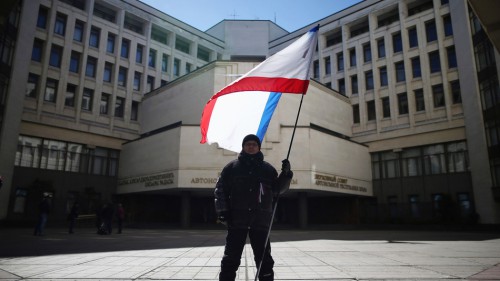

 del.icio.us
del.icio.us
 Digg
Digg


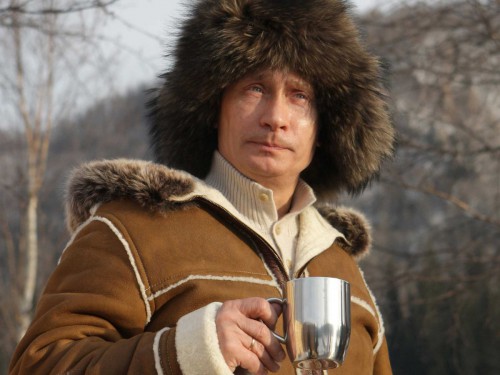




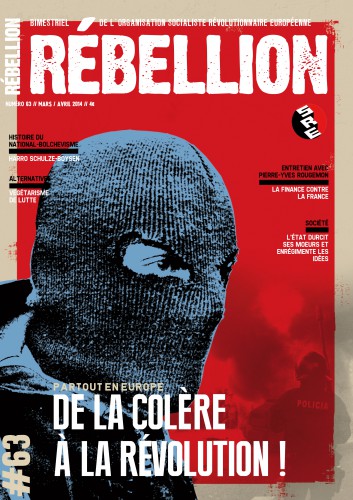
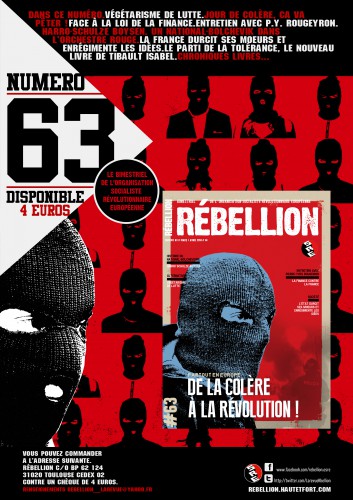


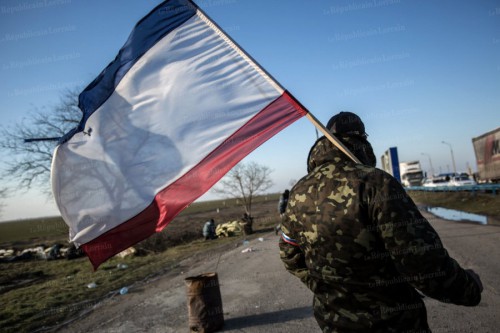
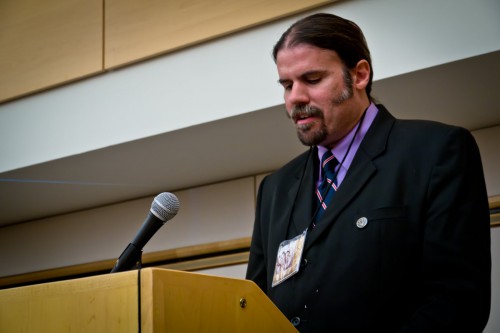
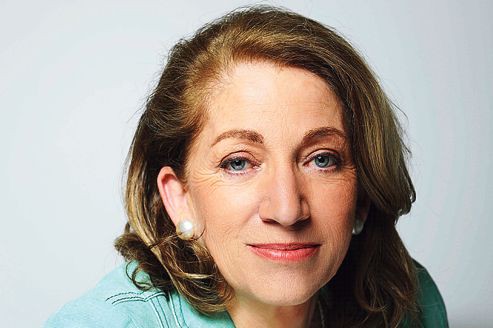


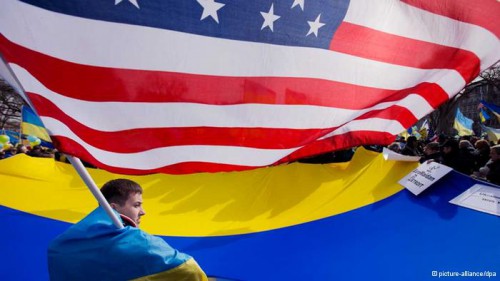
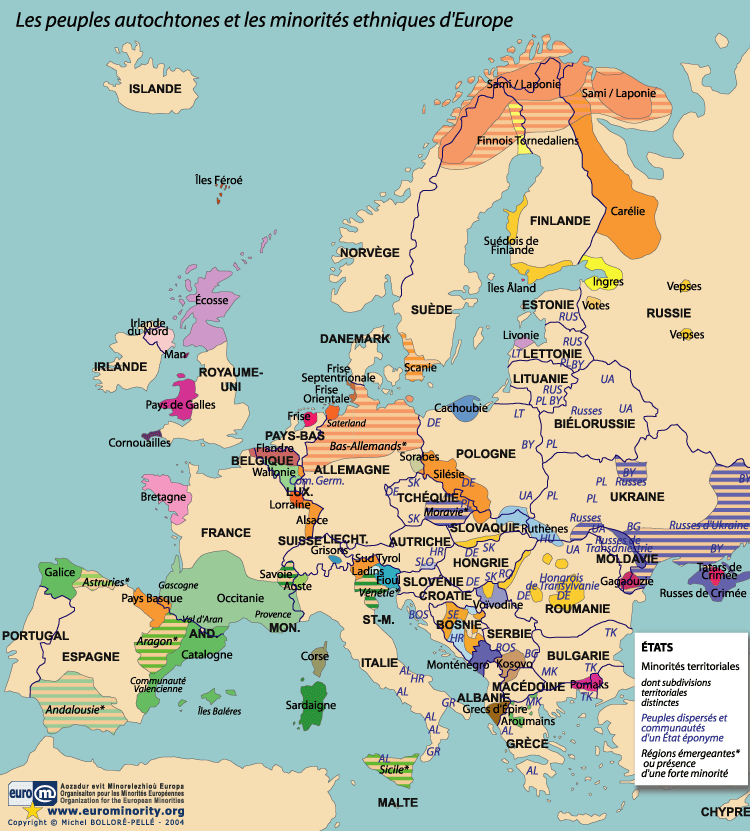

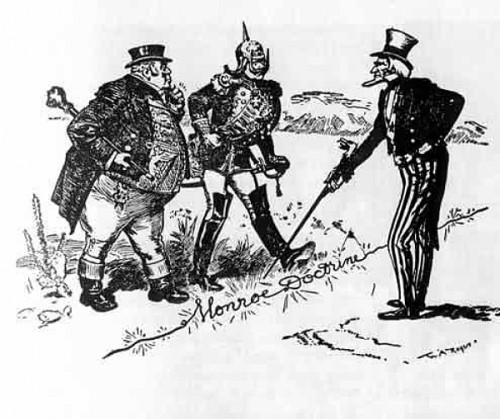
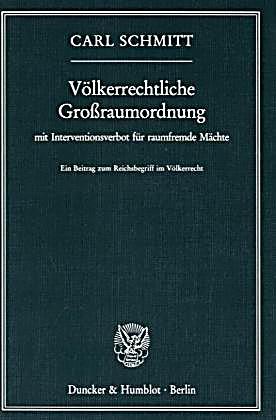 Die französische Regierung möchte nun jungen Afrikanern erlauben, die Schule bereits mit 14 anstatt mit 16 Jahren verlassen zu dürfen, da viele Afrikaner auf französisches Schulwesen ohnehin keinen Bock haben. Auf dem Arbeitsmarkt sollen sie sich dann bereits mit 14 unter die vielen anderen Arbeitslosen tummeln. Daß Arbeitsplätze – gerade im Zeitalter der Automatisierung – beliebig zu vermehren seien, gehört zum Lügengebäude des Liberalismus. Sozial ist deshalb nicht nur, was Arbeitsplätze schafft, sondern was raumfremde Arbeitskräfte – gesetzlich und friedlich – des Landes verweist. Die Lösung kann natürlich nur lauten: Die derzeit ausufernde Entwicklungshilfe ist an die Heimreise junger Afrikaner mit samt ihren Familien zu knüpfen. Schulen und Arbeitsplätze sind für Algerier in Algerien zu schaffen, da macht das Lernen – mit arabischer Unterrichtssprache! – erst richtig Spaß.
Die französische Regierung möchte nun jungen Afrikanern erlauben, die Schule bereits mit 14 anstatt mit 16 Jahren verlassen zu dürfen, da viele Afrikaner auf französisches Schulwesen ohnehin keinen Bock haben. Auf dem Arbeitsmarkt sollen sie sich dann bereits mit 14 unter die vielen anderen Arbeitslosen tummeln. Daß Arbeitsplätze – gerade im Zeitalter der Automatisierung – beliebig zu vermehren seien, gehört zum Lügengebäude des Liberalismus. Sozial ist deshalb nicht nur, was Arbeitsplätze schafft, sondern was raumfremde Arbeitskräfte – gesetzlich und friedlich – des Landes verweist. Die Lösung kann natürlich nur lauten: Die derzeit ausufernde Entwicklungshilfe ist an die Heimreise junger Afrikaner mit samt ihren Familien zu knüpfen. Schulen und Arbeitsplätze sind für Algerier in Algerien zu schaffen, da macht das Lernen – mit arabischer Unterrichtssprache! – erst richtig Spaß.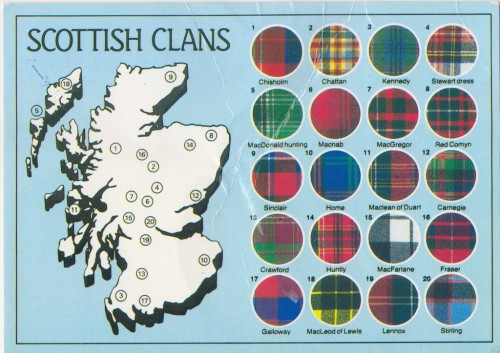
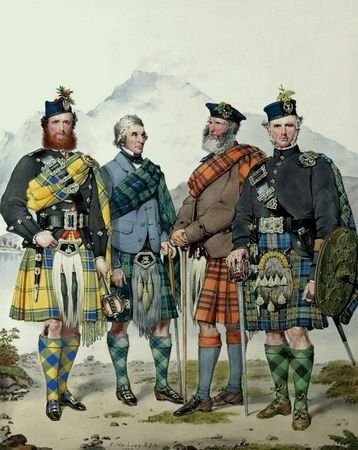 Writing for Cato Unbound, Mark Weiner, author of
Writing for Cato Unbound, Mark Weiner, author of 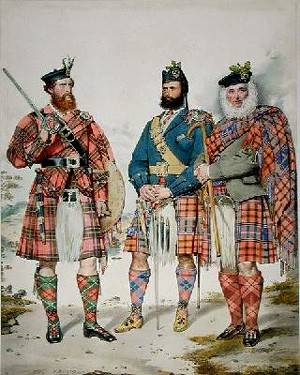 Weiner has concluded that, for the liberal state to thrive and continue to deliver on its promise of individual freedom and autonomy, it must do a better job of doing the things the clan has always done better. He suggests that the state “pursue policies that moderate economic inequality,” “provide space for the flourishing of voluntary civil society organizations that provide opportunities for solidarity,” and “ensure that individuals have fair opportunities to exercise their autonomy within the marketplace,” whatever that means.
Weiner has concluded that, for the liberal state to thrive and continue to deliver on its promise of individual freedom and autonomy, it must do a better job of doing the things the clan has always done better. He suggests that the state “pursue policies that moderate economic inequality,” “provide space for the flourishing of voluntary civil society organizations that provide opportunities for solidarity,” and “ensure that individuals have fair opportunities to exercise their autonomy within the marketplace,” whatever that means.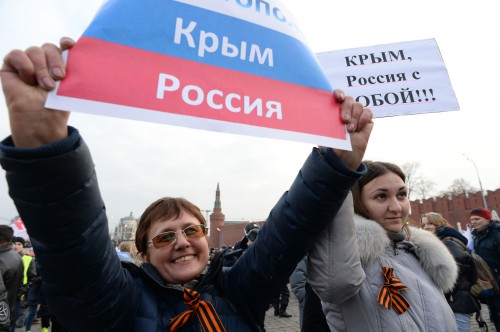

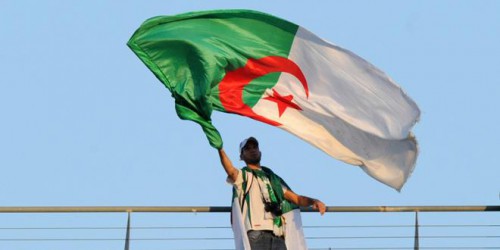

Ex: http://orientalreview.org/